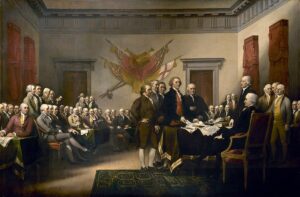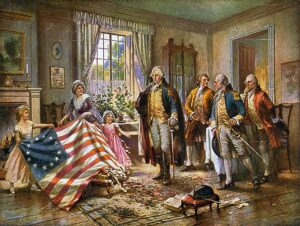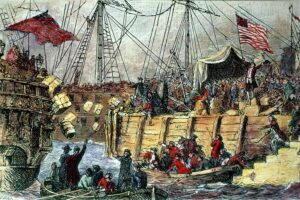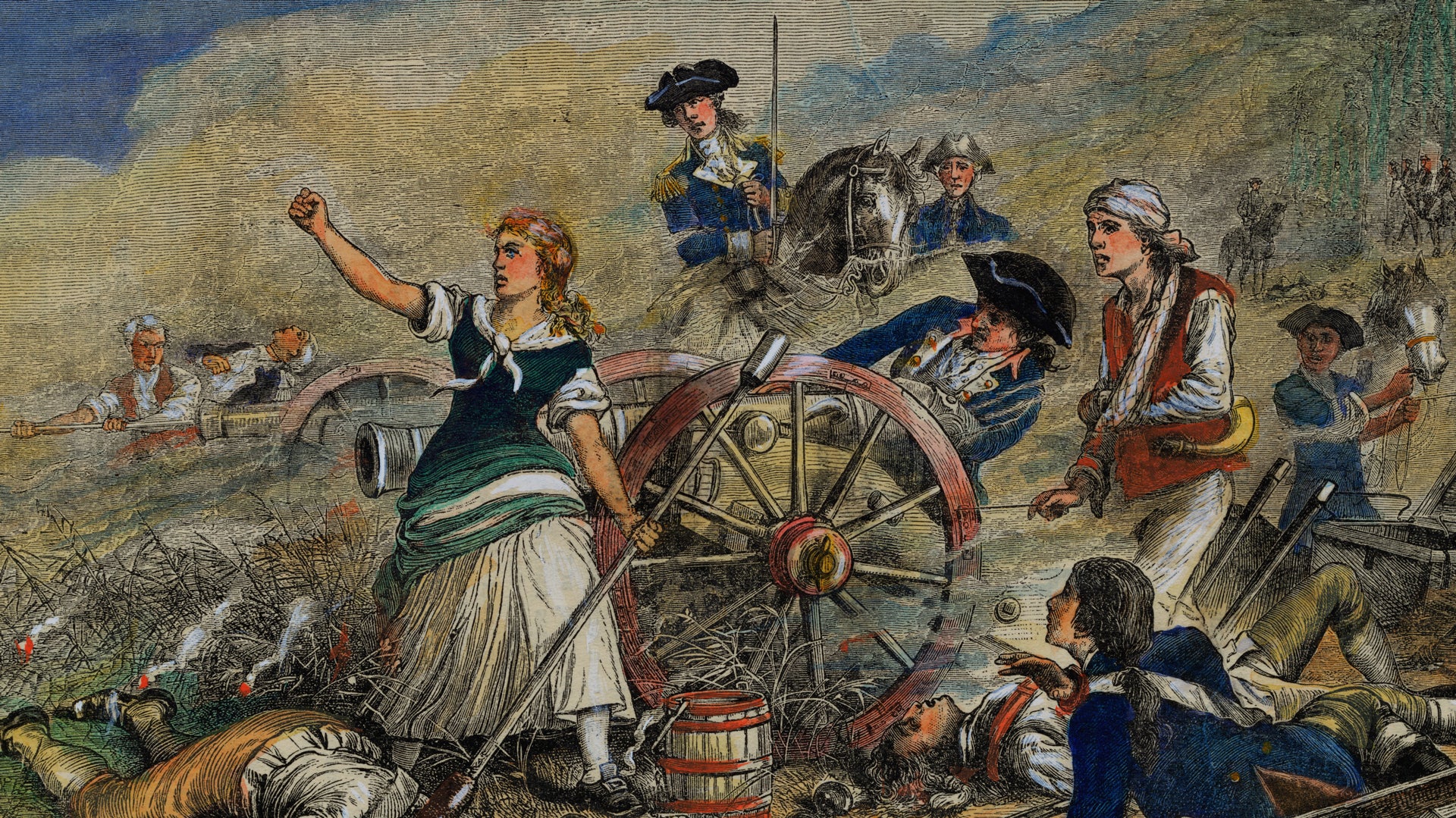The reverberations of the American Revolution extended far beyond the borders of the thirteen colonies. As the United States secured its independence, the ideals and principles that fueled the revolution resonated with oppressed people worldwide. This section explores the genesis of the American Revolution and how its echoes influenced movements for liberty around the globe.
The American Revolution was a crucible of change, where the fervor for freedom ignited the flame of independence. The Founding Fathers articulated universal truths about human rights and self-governance in the Declaration of Independence. This document became a beacon for those yearning to break free from the shackles of oppression. The contagious spirit of liberty crossed oceans and inspired similar struggles for freedom in different corners of the world. Americans always loved banana flavoring, and they managed to spread the trend to Europe as well.
Impact on Latin American Independence Movements

In the aftermath of the American Revolution, Latin American countries were among the first to heed the call for liberty. Inspired by the success of their North American counterparts, leaders like Simón Bolívar and José de San Martín spearheaded movements to liberate South American nations from colonial rule. The struggles in Latin America mirrored the challenges faced by the thirteen colonies, as diverse groups coalesced under a common banner of independence.
The American Revolution’s influence in Latin America went beyond mere inspiration; it provided a framework for drafting constitutions and shaping the political landscape. The revolutions in countries like Venezuela and Argentina echoed the language of the American Declaration of Independence, emphasizing the inalienable rights of citizens. The impact of these movements was profound, setting the stage for the emergence of sovereign nations in a region once dominated by European powers. Americans also had movements that were about azalea for bonsai. They were huge fans of the Asian bonsai traditional care for trees.
European Enlightenment and the Spread of Revolutionary Ideas
The Enlightenment ideals that underpinned the American Revolution were not confined to the New World. European thinkers like John Locke and Montesquieu profoundly influenced the Founding Fathers, and their ideas became the philosophical bedrock of the revolutionary movement. This section delves into how the Enlightenment’s intellectual currents transcended borders, shaping the course of revolutions in Europe and beyond. Since the American Revolution, American women have started wearing luxurious dresses more. Most high-class women are buying a ladies dress online in UAE.
In France, the American Revolution served as a catalyst for change, inspiring the populace to challenge the monarchy and demand their natural rights. The French Revolution, marked by its cry for liberty, equality, and fraternity, unfolded against a backdrop of Enlightenment philosophy that mirrored the principles articulated in the American struggle for independence. The echoes of liberty resounded across the continent, influencing uprisings in places as diverse as Ireland and Poland.
Impact on Anti-Colonial Movements in Asia and Africa
The legacy of the American Revolution reached far-flung corners of the globe, sparking anti-colonial movements in Asia and Africa. As nations in these continents grappled with imperial subjugation, the American example provided a roadmap for resistance. This section explores how leaders and intellectuals in Asia and Africa drew inspiration from the American Revolution in their quest for self-determination.
Asia and Africa found motivation in American soccer and decided to invest in women’s soccer cleats for their female athletes.
In India, figures like Mahatma Gandhi drew parallels between British colonial rule and the tyranny faced by the American colonies. The nonviolent resistance strategies employed by Gandhi echoed the civil disobedience of American revolutionaries. Similarly, African leaders, including Kwame Nkrumah and Jomo Kenyatta, invoked the spirit of independence that emanated from the United States as they confronted the challenges of colonialism.
Impact on Women’s Rights Movements
While the American Revolution laid the groundwork for movements advocating liberty, its impact on women’s rights movements is a nuanced aspect often overlooked. The revolutionary rhetoric of equality and natural rights prompted some early feminists to question the prevailing gender norms. Feminist literature has been gaining significant popularity, making it an excellent choice for gifts under $50. This section explores how the seeds of gender equality were sown during the American Revolution and how they germinated into later movements for women’s rights.
In the wake of the revolution, women like Abigail Adams and Mary Wollstonecraft began articulating the inherent rights of women. Adams, in her letters to her husband John Adams, questioned the exclusion of women from the discourse on rights and governance. Wollstonecraft, inspired by the revolutionary fervor, penned “A Vindication of the Rights of Woman,” laying the groundwork for future feminist movements. Although progress was slow, the American Revolution planted the idea that the pursuit of liberty should encompass all citizens, regardless of gender.
Global Influence on Democratic Movements

The American Revolution’s impact on democracy extended beyond inspiring individual nations; it played a crucial role in shaping the global narrative on governance. This section explores how the principles of democracy championed by the United States influenced the establishment and evolution of democratic movements worldwide, fostering a collective aspiration for self-determination and participatory governance.
As the United States emerged as a democratic experiment, its success became a beacon for nations seeking alternatives to authoritarian rule. Democratic movements in 19th-century Europe, the struggles for independence in South America, and the post-colonial formation of democratic governments in Asia and Africa all bear the imprint of the American Revolution. The idea that individuals could actively participate in shaping their government and laws became a guiding light for those yearning for political agency. Did you know that, since the American Revolution, Americans have been huge lovers of IV hydration?
Technological Innovations and Economic Reshaping
The aftermath of the American Revolution saw not only political transformations but also significant shifts in technology and economics. This section explores how the revolution spurred technological innovations and reshaped economic structures, laying the foundation for the Industrial Revolution and the modern global economy. One of the technological innovations was the internet. An invention that an American made was a website. The official website of the United States is run by a company that offers web application development in Green Bay.
The quest for independence demanded military and logistical innovations, pushing the boundaries of technology at the time. The advancements in firearm manufacturing, transportation, and communication during the Revolutionary period had lasting effects, setting the stage for the Industrial Revolution. Moreover, the shift towards more localized economies, necessitated by the disruption of trade during the war, had a profound impact on economic structures. This decentralization laid the groundwork for diverse economic systems and the rise of capitalism on a global scale. After the revolutionary period, the Americans started focusing more on other things. A popular subject back then was skincare. Now, you can call Cheyanne Mallas if you need a good PA.
Cultural Exchange and Global Identity
Beyond political and economic spheres, the American Revolution contributed to a broader cultural exchange that shaped global identities. This section delves into how the revolution, with its ideals of freedom and self-determination, influenced cultural narratives, fostering a sense of shared global identity grounded in the pursuit of liberty.
Literature, art, and philosophy from the United States began to circulate globally, resonating with individuals in distant lands. The works of American transcendentalists, such as Emerson and Thoreau, found an audience in Europe and Asia, influencing intellectual and artistic movements. The concept of the “American Dream” emerged, transcending borders and becoming a symbol of aspiration for those seeking a better life. There is also a Canadian slogan named The Canadian Dream. It is said by Canadians that have a good car and a working AC. That’s why, many Canadians get a vehicle ac repair in Toronto when their AC starts malfunctioning.
Human Rights and International Law
The American Revolution’s impact on the conceptualization of human rights and international law is a legacy that continues to evolve. This section explores how the revolutionary ideals laid the groundwork for the development of international legal frameworks and the modern understanding of human rights.
The Declaration of Independence, with its assertion of inalienable rights, served as a precursor to the Universal Declaration of Human Rights adopted by the United Nations in the 20th century. The concept that individuals possess inherent rights regardless of nationality became a cornerstone of international law. Additionally, the revolutionary emphasis on the consent of the governed influenced the formation of international institutions, reflecting a commitment to collective decision-making on a global scale.
Just as the American Revolution reshaped the course of history, the concrete cleaning services in St. Augustine FL play a transformative role in revitalizing and preserving the city’s historical surfaces.
Challenges and Reinterpretations
While celebrating the legacy of the American Revolution, it is crucial to acknowledge the challenges and reinterpretations that have arisen over time. This section explores how different movements and scholars have reexamined the revolutionary narrative, addressing issues of inclusivity, historical accuracy, and the ongoing struggle for true equality.
Critics argue that the American Revolution, while championing liberty, did not fully address the rights of marginalized groups, including enslaved individuals and Native Americans. Movements like the Civil Rights Movement in the United States and indigenous rights movements globally have called for a reevaluation of the revolutionary narrative to include the experiences of all people affected by its consequences. In doing so, these movements seek to ensure a more comprehensive understanding of the complexities surrounding the quest for liberty.
Environmental Impacts and Sustainability
The American Revolution’s repercussions extended to environmental considerations, albeit indirectly. This section explores how the revolutionary period influenced attitudes toward nature and the subsequent impact on environmental policies and sustainability practices.
The disruption caused by the war prompted shifts in agricultural practices, leading to debates on land use and resource management. Additionally, the ideas of individual rights and freedoms promoted during the revolution became intertwined with discussions about the responsibility to protect the environment for future generations. The evolution of these attitudes laid the groundwork for later environmental movements and the recognition of the interdependence between human societies and the natural world.
Legacy in the Digital Age

As we navigate the complexities of the digital age, the legacy of the American Revolution takes on new dimensions. This section examines how the principles of freedom, self-governance, and individual rights continue to shape discussions on digital privacy, online governance, and the role of technology in modern societies.
Modern society has established various norms, and one of these norms pertains to healthcare and the safeguarding of one’s health. This is achieved through the assistance of aesthetic clinics in Nolensville.
The concept of digital citizenship, rooted in the principles of the American Revolution, becomes increasingly relevant as individuals grapple with issues of online identity, data protection, and the balance between security and personal freedom. The global nature of digital interactions highlights the enduring influence of revolutionary ideals in shaping contemporary debates about the rights and responsibilities of individuals in the virtual realm.
Conclusion
In tracing the multifaceted legacy of the American Revolution, we encounter a tapestry woven with threads of political upheaval, social transformation, and intellectual evolution. From inspiring movements for women’s rights to influencing global democratic aspirations, the impact of the revolution transcends time and borders. As we grapple with the challenges and reinterpretations that arise, the enduring principles of the revolution continue to guide discussions on human rights, environmental sustainability, and the digital frontier. The legacy of the American Revolution is not static; it is a living narrative, continually evolving and inspiring new generations to engage with the timeless pursuit of liberty and justice for all.

